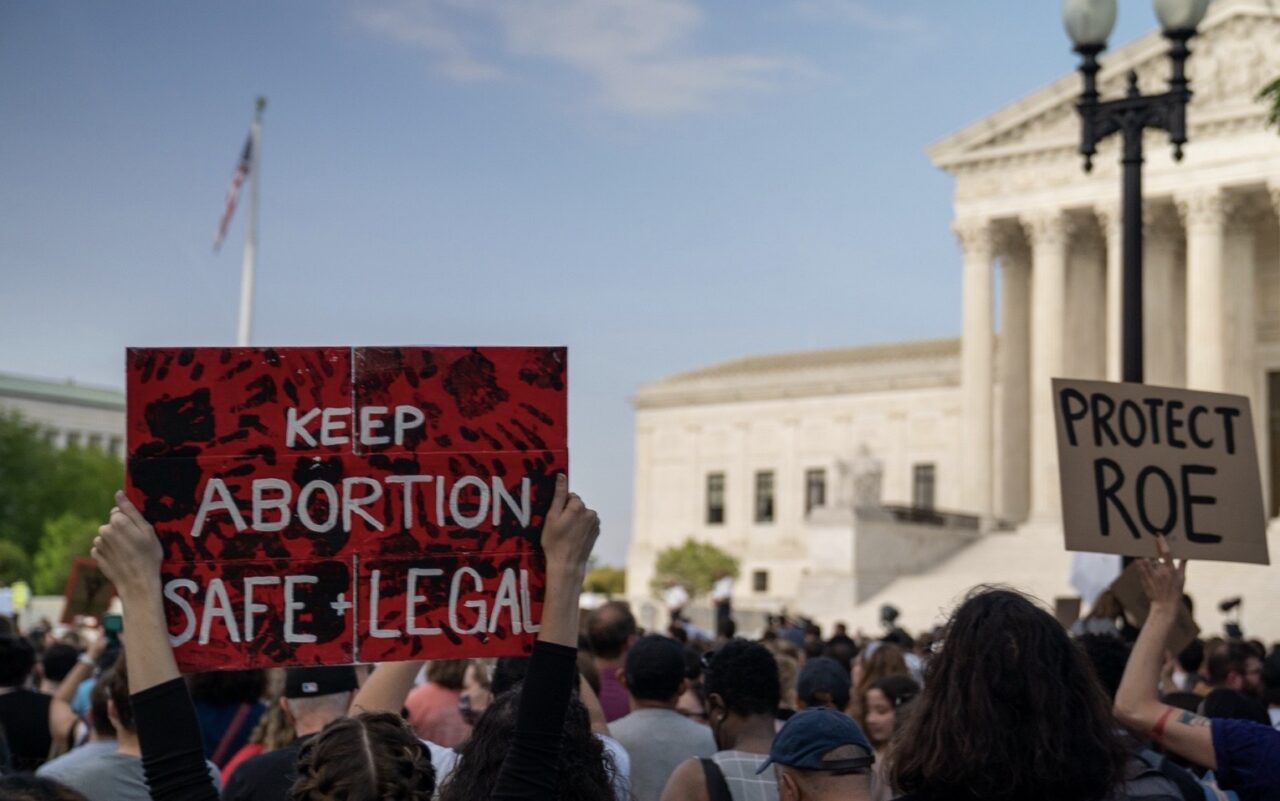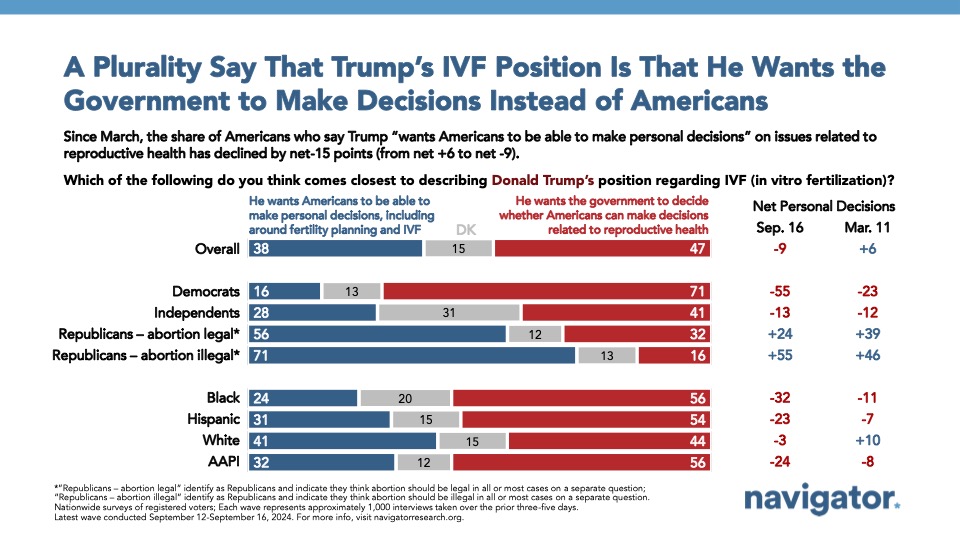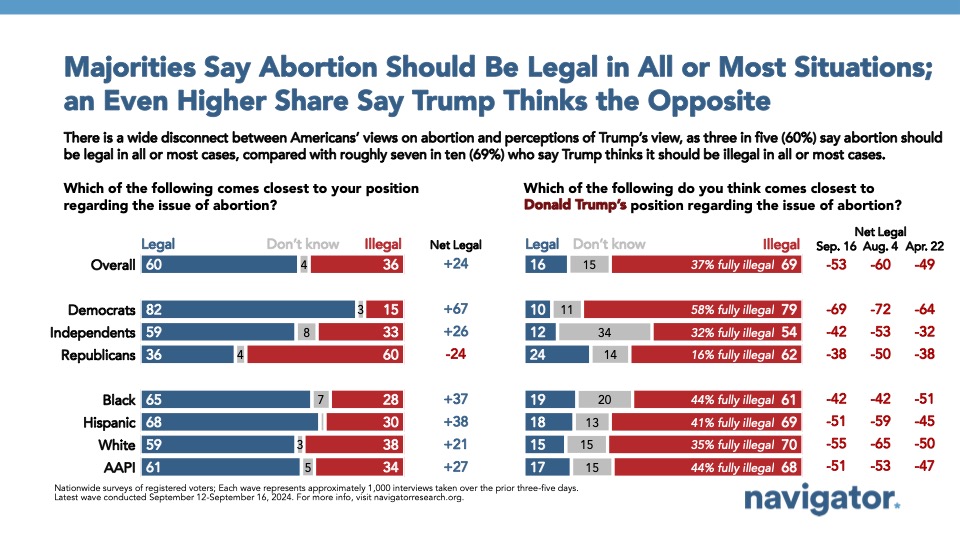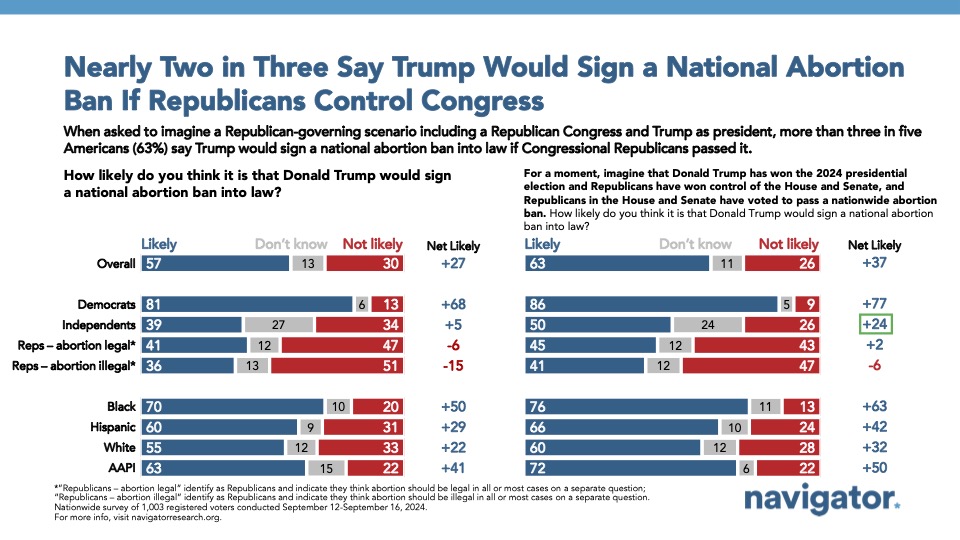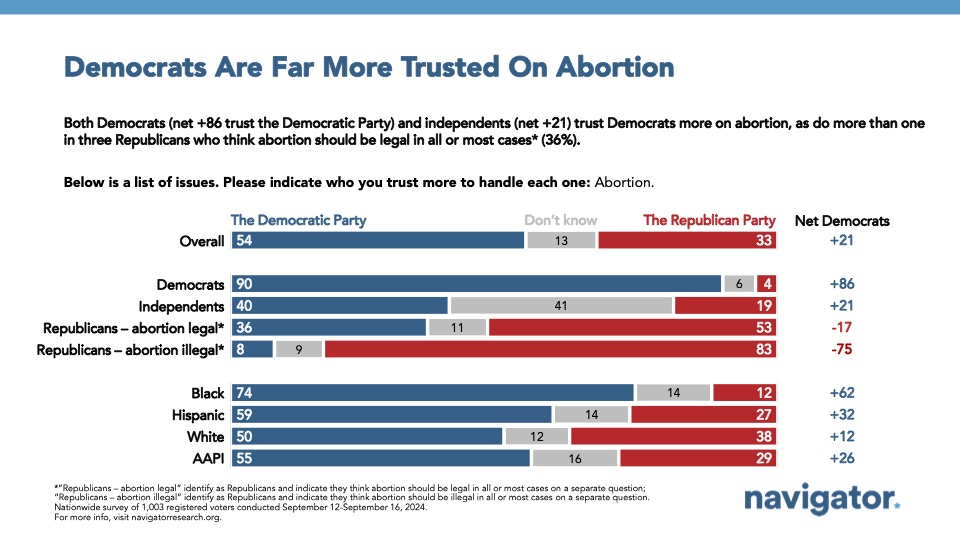Poll: Former President Trump on Abortion
This Navigator Research report contains polling data on Donald Trump’s perceived position on abortion and in vitro fertilization (IVF), and the share of Americans who believe he would sign a national abortion ban into law.
A plurality say Trump wants the government to make decisions around fertility planning and IVF instead of Americans.
More Americans believe Trump wants the government in control of Americans’ reproductive health care decisions than have the freedom to make their own decisions—a 10 point increase since March. 47 percent of Americans believe that Trump’s position on in vitro fertilization (IVF) is that “he wants the government to decide whether Americans can make decisions related to reproductive health” rather than “he wants Americans to be able to make personal decisions, including around fertility planning and IVF” (38 percent). In contrast, in March of this year, a plurality believed that Trump wanted Americans to be able to make their own reproductive health decisions (43 percent), while only 37 percent believed he wanted the government to make those decisions for Americans.
The increase in belief that Trump wants the government to make these decisions for Americans comes from Democrats (from 53 percent to 71 percent now), while a plurality of independents (41 percent—the same as share as earlier this year) say the same.
By a 20-point margin, women younger than 55 believe that Trump’s position on IVF is that “he wants the government to decide whether Americans can make decisions related to reproductive health” (50 percent) rather than “he wants Americans to be able to make personal decisions, including around fertility planning and IVF” (30 percent).
Most people say Trump thinks abortion should be illegal.
Seven in ten believe Donald Trump wants abortion to be illegal, and a majority believe he would sign a national abortion ban into law. 69 percent of Americans believe Donald Trump’s position on abortion is that he believes abortion should be illegal in all or most cases, including 79 percent of Democrats, 62 percent of Republicans, and 54 percent of independents. Similarly, 57 percent believe Trump would sign a national abortion ban into law (net +27; 57 percent would sign national abortion ban – 30 percent would not sign national abortion ban). This margin grows by 10-points when Americans consider a scenario that includes Donald Trump winning the election and Republicans taking control of Congress (net +37; 63 percent would sign abortion ban – 26 percent would not sign abortion ban).
When presented with the scenario that Donald Trump wins the election and Republicans take control of both the House and Senate, Democrats and independents both believe Donald Trump would sign a national abortion ban (86 percent and 50 percent believe he would sign an abortion ban, respectively), while Republicans are more split (42 percent would sign national abortion – 44 percent would not sign abortion ban).
The Democratic Party continues to be more trusted to handle the issue of abortion over Republicans.
The Democratic Party is seen as more trusted to handle the issue of abortion by double-digit margins (net +19; 54 percent trust Democratic Party – 33 percent trust Republican Party), including by women under the age of 55 by a 34-point margin (59 percent trust Democratic Party – 25 percent trust Republican Party).
60 percent of Americans believe abortion should be legal in all or most cases, while only 36 percent believe abortion should be illegal in all or most cases. A majority of Democrats and independents believe abortion should be legal (82 percent and 59 percent, respectively), while just over one in three Republicans believe the same (36 percent legal – 60 percent illegal).
Among those most likely to believe abortion should be legal in all or most cases are Hispanic Americans (68 percent), Black Americans (65 percent), and women under the age of 55 (65 percent).
